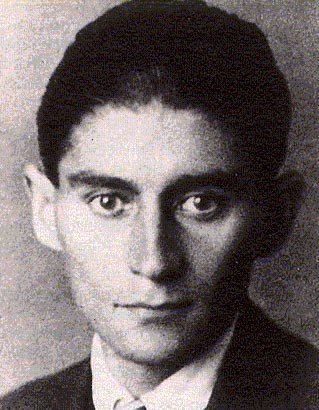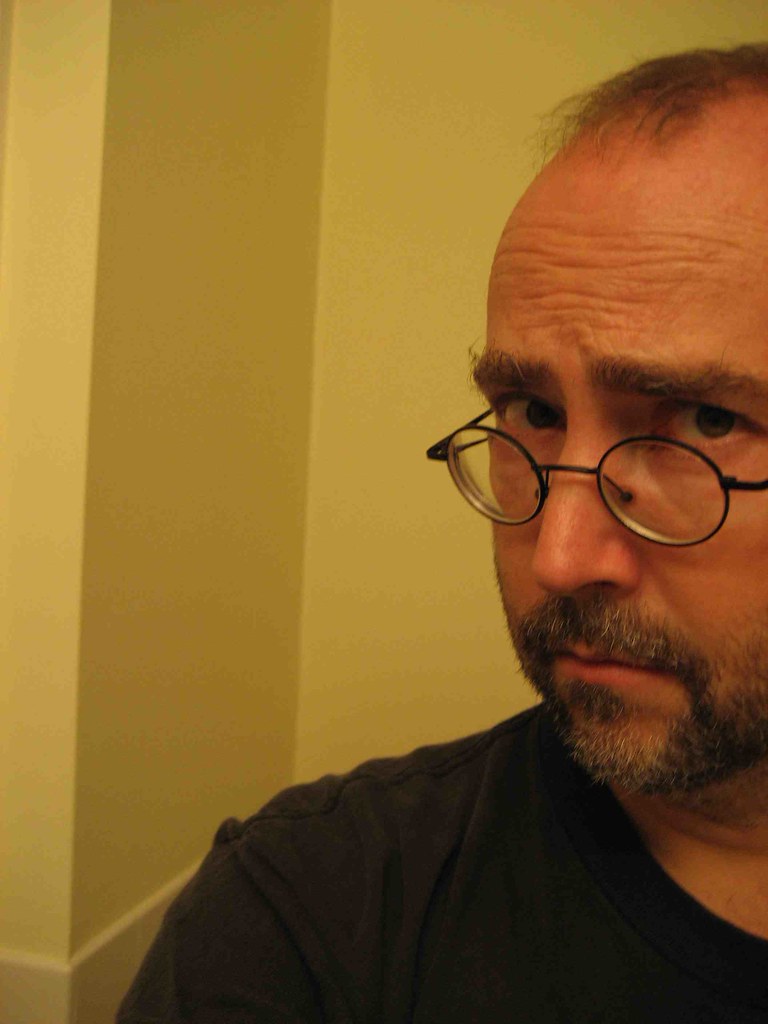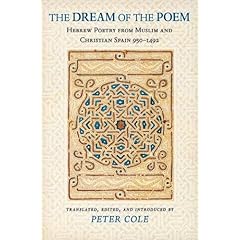The following poem, by my old friend (and first creative writing teacher)
Henry Weinfield, originally appeared in his chapbook
The Tears of the Muses (Dos Madres Press, 2005). It will be included in his forthcoming volume of new and selected poems, which Dos Madres will be publishing, probably later this year. Last night Henry read the poem at Xavier, along with selections from his new
Hesiod translation and a beautiful retelling in verse of the stories about the prophet Elijah, from the Book of Kings. Weinfield is, as far as I'm concerned, one of the greatest poets writing in English today. The fact that he writes entirely in rhyme and meter, using utterly pellucid diction and straightforward grammatical structures, makes him, to say the least, a nonesuch, and one whose work may be unacceptable to readers (mostly academics) given over to what might be called the ideology of the avant-garde. In any case, he is a poet willing to take extraordinary risks, which almost always pay off. "Praise and Lamentation" strikes me as one of the most important Jewish poems--and one of the most insightful political poems--to come along in many years. It is, needless to say, a provocative work on every level. Henry has consented to have the poem reprinted here. We invite your comments.
PRAISE AND LAMENTATION
I praise an Israeli soldier named Nisan:
“They think that I’m a monster with a gun,
Who prays each day, eats kosher, yes, and kills
Arabs,” he says. Sardonically, he smiles:
“I never pray; I don’t believe in it”
(There’s something oddly comforting in that);
“I drink milk and eat cheese even with meat.”
He lives in a village bordering Lebanon,
Which
Hezbollah is always firing on;
He’s nineteen and he hasn’t slept for days.
Another reason to accord him praise
Is that he hasn’t any politics
To speak of: all he wants is to go home!
His people really are in quite a fix,
So he’s stuck standing guard in Bethlehem!
These are my people, and I’m proud of them.
These are my people and I’m proud of them,
But now we too must learn to bear the shame
That other peoples, nations (
goyim) do,
For we are now among the nations too,
And have ourselves begun to victimize
Others (it’s one of history’s sadder ironies).
Oh, it was easier in our own eyes,
When violence was visited on us,
To be a victim and be virtuous,
But now it seems to end in violence;
And though we say that it’s in self-defense
We know that it’s a half-truth – hence a lie.
We, who once preached against idolatry
And put an end to human sacrifice,
We, through whose books the world learned to be wise,
We too have now resorted to the slick
Impostures of religious rhetoric.
Religion in its Latin derivation
Refers to that which binds us to a nation,
And in the end, when all is said and done,
It binds us to the past – to what is gone,
And binding us together, binds us down,
Making us monads of the nation-state,
Anachronism’s slaves – such is our fate.
We who wrote Jonah and the Book of Ruth
Had pity once on strangers, for in truth
We had been strangers in an alien land.
We who wrote Job, Ecclesiastes, and
The Book of Samuel once understood
That since we’re really only flesh and blood,
Apotheosis isn’t in our line:
We’re human, all too human, not divine.
Ruth was from Moab, southern Palestine,
And Job was probably an Edomite;
Yet evidently they both got it right,
While Jonah had to be rebuked for pride
(He wanted God to practice genocide!)
And even David, the anointed one,
Was made to grieve through Absalom, his son,
Because he took a lamb that wasn’t his.
If one is chosen, this is what it is
To choose to be among the chosen ones –
Knowing that nothing that one has or owns
Or is a part of has priority.
This is a great responsibility
And most of us find it far too arduous:
It seems to be much easier for us
To think we have a special destiny
And have been chosen by the fates on high.
The Chosen People are the ones who knew
That no one’s ever chosen; this being so,
They learned to live within a paradox
Inscribed in secret in their sacred books,
Books that the centuries bequeathed to us.
That’s why their writings are anonymous,
And why as wanderers without a home
They learned to wait for what would never come.
Easy to valorize, from where I stand,
The People of the Book and not the Land,
Here in the comfort of America,
Not the worst corner of Diaspora,
A promised land flowing with milk and honey –
At least for those who have been blessed with money.
Easy to fail to recognize that these
Fanatic settlers are refugees
From Yemen, Egypt, Turkey, and the dark
Precincts of Williamsburg or Borough Park
(At any rate, from somewhere in New York),
Shaped, like the rest of us, by circumstance,
Contingency, exigency, or chance,
And, like the rest of us, committed to
A way of life, things that they think are so.
Their history is not your history;
And why should you imagine you are free
Of prejudice, much less that you were sent
To be a spokesman for enlightenment?
No one is chosen, as I said before
(It’s very hard to hear this); what is more,
Nobody really chooses on his own.
To be, essentially, is to be thrown
Into a world of possibilities
Impossible to grasp, do what you please:
A partial world in which we play a part,
Not one that we have made as one makes art –
And we are part and partial, never whole.
That’s why we seek for power and control
As partisans – as Arab or as Jew,
Believing that our own beliefs are true
And ready to engage in violence –
As if there weren’t any common sense
Or age-old wisdom one could bring to bear –
Like little children, never taught to share.
So here we are, and likely to remain,
In the proverbial
condition humaine,
Arab and Jew, you, me, and everyone,
A nineteen-year old soldier named Nisan,
Stuck in the past, in bondage, partisan.








